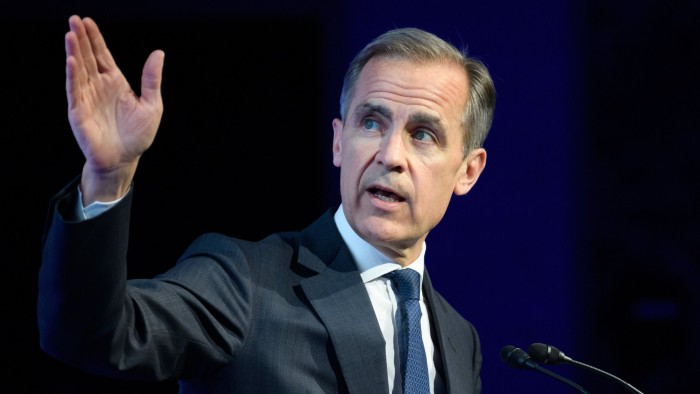A chance for the Bank of England to rethink its priorities

Roula Khalaf, Editor of the FT, selects her favourite stories in this weekly newsletter.
Technology is shifting traditional boundaries between sectors. Chinese group Ant Financial’s payment service now has a billion users — five times more than the largest US bank. Facebook has announced plans to create a digital currency. More than half of all financial intermediation globally now happens outside the banking system. Risks are moving. But this time of transition also creates opportunities for finance to serve customers and the economy better.
Last year, Bank of England governor Mark Carney asked me to lead a review of the UK’s financial system to strengthen the BoE’s agenda, toolkit and capabilities. We focused on three questions: how can technology increase finance’s resilience; how can finance support the transitions we are witnessing; and how can finance serve the digital economy? Here are five of the review’s recommendations.
First, there is huge scope for the UK to be a world leader in digital regulation and to become more effective and efficient. Regulation is too complex: the BoE’s rule book is longer than the Old Testament of the Bible, once all the global and European rules are included.
No individual can keep up with its updates. Some of the staff members who supervise banks receive reading material that is the equivalent of reading twice the complete works of Shakespeare each week. We should use machine learning to strengthen our ability to spot irregularities and get a better view of the system’s overall health and emerging risks.
Current practices are expensive. The consultancy McKinsey estimates that regulatory reporting for UK banks costs the industry £2bn-£4.5bn per year. That is passed on to customers. A new data strategy should take into account both the cost to the regulator and the efficiency of the overall system.
Second, the BoE should work to strengthen cyber security. The financial system is under almost constant attack. Co-ordination between businesses and authorities is yielding results but we must do more to safeguard the system from this threat. The central bank and private sector should make it easier to recover data in the event of a major incident, including a mechanism that allows companies to step in for each other.
Third, the BoE should start stress testing financial institutions for their ability to cope with climate change. The transition to a low-carbon economy poses risks and opportunities for the financial sector and the economy. Investors, lenders and insurers lack a clear view of how companies will fare as the environment changes, regulations evolve, new technologies emerge and customer behaviour shifts. Without this information, financial markets cannot price climate-related risks and opportunities effectively.
The UK’s Task Force on Climate-related Financial Disclosures has made good progress in shaping a global standard for voluntary disclosures by businesses. The BoE should champion climate disclosures in mainstream financial accounts. Armed with this data, the bank can undertake stress tests.
Fourth, the bank should support financial institutions as they start to employ cloud technologies. These tools can speed up innovation, make it easier to personalise finance, increase competition and build resilience. They have now matured to the point that they can meet the high expectations of regulators and financial services. For midsized companies, moving to the cloud can also improve cyber security. But 43 per cent of UK financial companies say regulatory requirements are the main barrier to adopting such technology, according to fintech group Finastra.
To enable British companies to innovate and compete on a level playing field, the BoE should set clear standards for using the public cloud.
Fifth, we need a national plan for payments that leaves no one behind. In Sweden, cash payments have fallen by 80 per cent over the past decade. Our analysis suggests the UK may only be four to six years behind. ATM usage is already 9 per cent down this year compared with the previous 12 months. Digital payments bring many benefits. But the Swedish experience shows that, without a co-ordinated plan, the pace of change risks excluding some groups in society. Any plan must include improving broadband and telecoms networks and updating payments regulation for online.
Our review also looked at the ethical use of artificial intelligence and better regulatory co-ordination of big projects. I am delighted that many of these suggestions are being taken forward. I hope they will help the bank continue to play a world-leading role in promoting a diverse, resilient and vibrant UK financial system.
The writer is senior adviser to the governor of the Bank of England
Comments